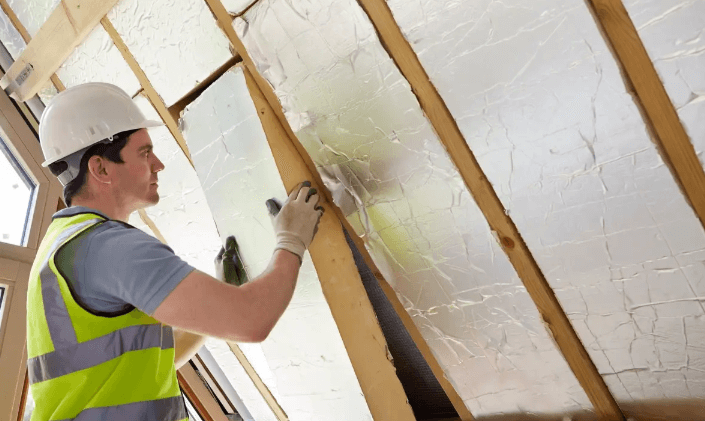Why Roof Insulation Matters: Protecting Your Home from Heat and Cold

How does roof insulation affect the comfort and energy efficiency of a home? What benefits come from investing in the right type of thermal barrier? Let’s explore its importance and why it’s essential for maintaining a comfortable living environment.
Understanding Roof Insulation
The importance of roof insulation in managing indoor temperatures cannot be emphasized enough. This barrier prevents heat from leaving in the winter and keeps cool air inside during the summer. Large amounts of energy can be lost through the roof without an adequate insulating layer, resulting in greater heating and cooling expenditures. In addition, insulation helps maintain a consistent indoor temperature, reducing the need for constant adjustments.
Professional installation guarantees that insulation is placed accurately and effectively, optimizing its performance and benefits. Experts can also recommend the best materials for the home’s specific climate and structure, ensuring optimal results.
Types of Roof Insulation to Consider
There are several materials available, each offering unique benefits. Choosing the right alternative is determined by factors such as budget, climate, and the property’s special requirements. Fiberglass is one of the most popular choices due to its low cost and ease of installation. It is made up of thin glass fibers that trap air, resulting in exceptional thermal resistance.
Spray foam is another option known for its high R-value, which measures the material’s effectiveness. Rigid foam boards are ideal for flat roofs or areas with limited space, as they offer strong insulation with a slim profile.
Benefits of Proper Roof Insulation
Properly installed thermal barriers offer numerous benefits beyond regulating indoor temperatures. They can lower energy costs by reducing the need for heating and cooling. This leads to long-term savings and a more sustainable home. Additionally, quality materials provide soundproofing, reducing noise from outside or between floors. These advantages highlight why investing in high-quality materials is a valuable decision:
- Energy efficiency: Lowers energy bills and reduces heating and cooling demands.
- Comfort: Maintains consistent indoor temperatures year-round.
- Moisture control: Prevents condensation and potential mold growth.
- Soundproofing: Minimizes external noise and creates a quieter environment.
Enhancing Comfort with Thermal Insulation
During summer, it prevents excess heat from entering the home, keeping indoor spaces cooler. This eases the pressure on air conditioning systems and cuts cooling expenses. In the winter, the insulating layer absorbs heat, keeping rooms warm without overusing heating systems.
Professionals can evaluate the home’s unique needs to determine the best insulation type and placement. Their expertise ensures proper installation, optimizing thermal performance and enhancing overall comfort and energy efficiency.
Read also Why Experience Matters: Top Benefits of Hiring a Skilled Roofer for Your Home
Choosing the Right Insulation Thickness
Another key consideration is the thickness of the insulation material. A thicker insulating layer provides better thermal resistance, but choosing the right thickness for the type of roof and climate is essential. For example, homes in colder regions may require thicker insulation to prevent heat loss during the winter months. On the other hand, properties in warmer climates might benefit from thinner, more reflective layers to minimize heat absorption.
Working with a specialist can help you identify the proper thickness. They can evaluate factors like roof structure, local weather patterns, and energy needs to recommend the best option. Choosing the right thickness ensures optimal performance and long-term benefits.
Understanding the importance of roof insulation is vital for maintaining a comfortable and energy-efficient home. Proper thermal barriers regulate indoor temperatures, reduce energy costs, and protect against moisture-related issues. Selecting the right type and thickness further enhances their effectiveness. Consulting with professionals ensures that the insulation is installed correctly and tailored to the home’s specific needs, maximizing its performance. By investing in high-quality materials, homeowners can ensure that their homes are well-protected and pleasant in both hot and cold weather.




